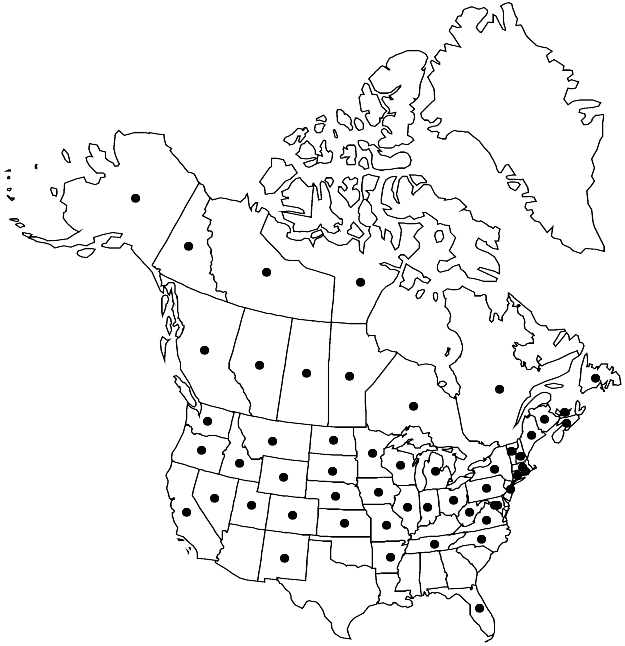Erysimum cheiranthoides
Sp. Pl. 2: 661. 1753.
Annuals. Trichomes of leaves primarily 3- or 4-rayed, sometimes mixed with 5-rayed ones, 2-rayed trichomes primarily on stem and pedicels. Stems erect, often branched distally, (ribbed), (0.7–)1.5–10(–15) dm. Basal leaves (withered by fruiting), similar to cauline. Cauline leaves: (median and distal) shortly petiolate or sessile; blade (lanceolate, linear, or elliptic-oblong, (1–)2–7(–11) cm × (2–)5–12(–23) mm, base cuneate) margins usually subentire or denticulate, rarely sinuate-dentate, (apex acute or obtuse). Racemes considerably elongated in fruit. Fruiting pedicels divaricate or ascending, slender, much narrower than fruit, 5–13(–16) mm. Flowers: sepals oblong, 1.8–3.2 mm, lateral pair not saccate basally; petals yellow, narrowly spatulate, 3–5.5 × 1.5–2 mm, claw 1.5–3.5 mm, apex rounded; median filaments 2–3.5 mm; anthers oblong, 0.5–0.7 mm. Fruits suberect or divaricate-ascending, linear, straight, somewhat torulose, (1–)1.5–2.5(–4) cm × 1–1.3 mm, 4-angled, not striped; valves with prominent midvein, pubescent outside, trichomes 3–5-rayed, densely pubescent inside; ovules (20–)30–55 per ovary; style cylindrical, slender, 0.5–1.5 mm; stigma entire or slightly 2-lobed, lobes as long as wide. Seeds oblong, 1–1.5 × 0.4–0.6 mm; not winged. 2n = 16.
Phenology: Flowering Jun–Aug.
Habitat: Dry stream beds, moist areas, waste ground, fields, pastures, disturbed ground
Elevation: 0-3000 m
Distribution

Introduced; Alta., B.C., Man., N.B., Nfld. and Labr. (Nfld.), N.W.T., N.S., Nunavut, Ont., P.E.I., Que., Sask., Yukon, Alaska, Ark., Calif., Colo., Conn., D.C., Fla., Idaho, Ill., Ind., Iowa, Kans., Maine, Md., Mass., Mich., Minn., Mo., Mont., Nebr., Nev., N.H., N.J., N.Mex., N.Y., N.C., N.Dak., Ohio, Oreg., Pa., R.I., S.Dak., Tenn., Utah, Vt., Va., Wash., W.Va., Wis., Wyo., Europe, Asia, n Africa.
Discussion
Selected References
None.